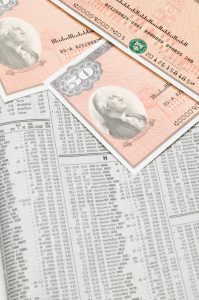
Read on to learn about one aspect of business bankruptcy – your company stock – and then contact The Law Offices of Paul Y. Lee at 951-755-1000 to learn more about the options available to your company and which would likely work on most in your favor.
A lot depends on what type of bankruptcy you choose to file
If your company decides to file Chapter 11, then your company will be able to keep operating. Unlike Chapter 7, which does require total liquidation of business assets, Chapter 11 is all about restricting the debt of your company. This option is often referred to as a reorganization plan. A committee of creditors will come together to negotiate the plan.
The point of the plan is to determine when, how, and to what extent your company’s creditors are going to get paid for the debts your company owes. This is also when it will be decided what shareholders will get. Most of the time, a shareholder is only going to get a small percentage of compensation – and they may get none at all.
Consider a study that looked at bankruptcy data from 2009 and 2010. It found that in fewer than one in ten Chapter 11 cases did equity holders (which includes shareholders) get significant compensation. In most cases, shareholders will get either nothing or very little unless the creditors of the company are paid back in full.
Creditors get higher priority in a business bankruptcy
When it’s decided who will be paid back and to what extent, payback won’t be done simultaneously. Instead, certain creditors have a higher priority compared to others. In most cases, secured creditors are at the top of the list, and then unsecured or general creditors come next. Finally, shareholders will be in the third position.
The bankruptcy trustee may request that shareholders give the stock back, which is then replaced by shares in the reorganized business. That said, the shareholder typically won’t get as many as they held in the previous business. You can create a proposal for your own reorganization, but the Chapter 11 committee is likely to reject it if it doesn’t follow these general rules. You could then take it to bankruptcy court and find out if they court will approve the plan you’ve proposed anyway.
It’s true that business bankruptcies can be complicated and they can negatively impact many people. That said, a Chapter 11 bankruptcy could keep the doors of your business open and allow your company to continue running. It could allow you to simply reorganize your debt to a manageable level. To learn more about these and other options, reach out to The Law Offices of Paul Y. Lee at 951-755-1000 today.

